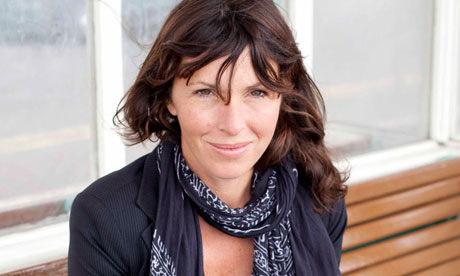Rachel Cusk's new memoir describes with brutal honesty the breakdown of her marriage. Why has she laid bare her family trauma, has she invaded her children's privacy and does she regret it?

Author Rachel Cusk, who has written about the breakdown of her marriage in her new memoir Aftermath: On Marriage and Separation. Photograph: Katherine Rose for the Observer
Few figures in contemporary British literature divide people like Rachel Cusk. The writer, whose new memoir Aftermath: On Marriage and Separation is published next month, attracts both admiration and ire: for her boldness as an artist, her self-belief, her pitiless gaze at herself and others. Her earlier book, A Life's Work, a devastating confessional about her experience of motherhood, "the long pilgrimage of pregnancy with its wonders and abasements, the apotheosis of childbirth, the sacking and slow rebuilding of every last corner of my private world that motherhood has entailed", attracted fury from some women critics: why bother having children, they said, if you're just going to write about how grim it all is. And Aftermath looks set to provoke more anger: it is a fierce, at times brutal examination of how Cusk left her husband of 10 years, and how she then tried to rebuild her life and the lives of her two children – considering stay-at-home mothers who describe themselves as "lucky", a disturbed lodger and a new lover along the way. She has again mined her life and told of her experience of being a woman, in a manner that is in no way comforting. Women writers do not tend to do this and get away with it.
Her writing is economical and precise – she describes someone as "a woman whose sorrows take extrovert and hedonistic forms" – which won't surprise readers of her under-rated novels. And her eye for detail, which she casts over incidents, interactions, relationships, is both merciless and subtle: from her suggestion that women in conventional families "can't see anything at all", to her admission that in wounding her children "I learned to truly love them", to her pitch-perfect evocation of the post-separation home: "Our daughters and I do not leave home very often: a kind of numbness has settled on our household that any moment can transform into pain." She writes, "they're my children. They belong to me": the sort of primal statement which one rarely reads these days, when men and women are so often seen as equal and identical "parents" rather than mothers and fathers.
Full piece and interview at The Guardian.
Her writing is economical and precise – she describes someone as "a woman whose sorrows take extrovert and hedonistic forms" – which won't surprise readers of her under-rated novels. And her eye for detail, which she casts over incidents, interactions, relationships, is both merciless and subtle: from her suggestion that women in conventional families "can't see anything at all", to her admission that in wounding her children "I learned to truly love them", to her pitch-perfect evocation of the post-separation home: "Our daughters and I do not leave home very often: a kind of numbness has settled on our household that any moment can transform into pain." She writes, "they're my children. They belong to me": the sort of primal statement which one rarely reads these days, when men and women are so often seen as equal and identical "parents" rather than mothers and fathers.
Full piece and interview at The Guardian.

No comments:
Post a Comment